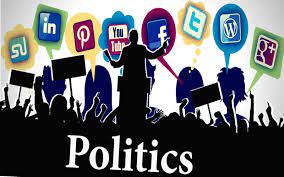Table of Contents
Political media is crucial in influencing public opinion and changing political landscapes in the information era. The way political information is disseminated has changed dramatically, from radio and television to social media platforms, with both beneficial and detrimental effects. This extensive essay will dig into the complex realm of political media and examine its importance, difficulties, and potential social effects.
Overview of Political Media
The term “political media” describes the channels used to spread political news, information, and messages to the general public. It covers a variety of media, such as print publications, broadcast media, internet blogs, social media, and more. Informing the public on political issues, issues, candidates, and government activities is the main objective of political media.
The Impact of Political Media on Public Attitude
Political media is an effective weapon that has the capacity to either favorably or adversely influences public opinion. How people see political individuals and policies may be greatly influenced by news coverage, editorials, and political disputes.
Objectionability and Media Bias
Bias exists in political media, which is a serious concern. Media organizations frequently have editorial stances that might influence their reporting and judgments. Consumers must be cognizant of this prejudice and actively seek out different viewpoints.
False information and misinformation
As social media usage has increased, false news and misinformation have become more prevalent. False stories may spread quickly, causing misunderstandings and mistrust of reputable political organizations.
Changes in Political Media
The political media environment has changed throughout time, adjusting to both consumer behavior changes and technology improvements.
The Age of Digital
The internet transformed political media by enabling real-time connection between politicians and their constituents and rapid access to information.
Political campaigns and social media
Political campaigns now rely heavily on social media platforms because they let candidates interact with their supporters directly and win votes.
The Confusing Political Media
Political media may be a confusing field where there is frequently too much information and contradictory stories are presented. People frequently come across different points of view, which can cause confusion and ambiguity.
The Political Media’s Burst
The quick and erratic style of information distribution is referred to as the political media’s “burstiness.” Within minutes, news articles may become viral, profoundly influencing political processes and public opinion.
Media in Politics: Their Relevance
The political media is an important part of contemporary society since it helps to inform the public on important political events, policies, and developments while also influencing public opinion. This essay will examine the importance of political media and how it affects the political environment.
1. Public Education
The public’s education on political issues is one of the main purposes of political media. The public has access to real-time information on governmental activities, policy choices, and political events on a national and international level through newspapers, television, radio, and internet media.
2. Promoting Political Conversation
Politicians, professionals, and individuals can engage in debates and discussions about numerous subjects on a platform provided by political media. It encourages a knowledgeable and engaged populace by fostering a democratic interchange of ideas and perspectives.
3. Changing Public Attitude
There is no denying the political media’s ability to sway public opinion. People’s perceptions of political individuals, programs, and events can change as a result of news coverage, editorials, and social media conversations. Citizens must be able to critically assess the information provided and recognize media bias.
4. Fostering Openness
In order to encourage openness in governmental acts and decisions, political media is crucial. Investigative reporting and press freedom ensure that people in authority behave in the public’s best interests by holding them responsible.
5. Giving Citizens Power
Citizens who have access to political media are more equipped to take part in the democratic process. Voting, political participation, and holding elected people responsible are all more probable among informed individuals.
Concerning Political Media FAQs
Q: How do political media outlets influence elections?
A: Voters’ impressions of candidates and topics can be influenced by political media, which could affect election results.
Q: What steps may be taken to counter media bias?
A: Readers can look for news sources with many points of view and double-check material before taking it at face value.
Q: How has political discourse altered as a result of social media?
A: Direct connection between politicians and voters is now possible thanks to social media, which has boosted political discourse.
Q: Is political media the only source of influence over public opinion?
A: Although political media has a big effect, individual experiences and other social elements also have an impact on public opinion.
Q: How can people maintain their level of knowledge in the face of information overload?
A: People may successfully traverse the intricacies of political media by regularly fact-checking material and consulting numerous sources.
Conclusion
In conclusion, political media has a significant influence on how the public perceives issues and how elections turn out. While it offers a forum for thoughtful conversations and debates, it also raises issues like prejudice and false information. It is crucial for viewers of political media to maintain their critical thinking skills, look for different viewpoints, and double-check information from reputable sources.




